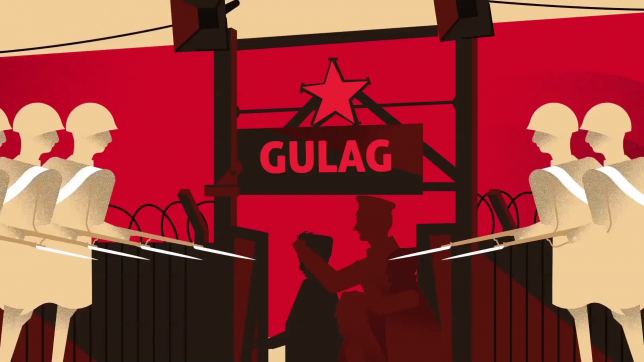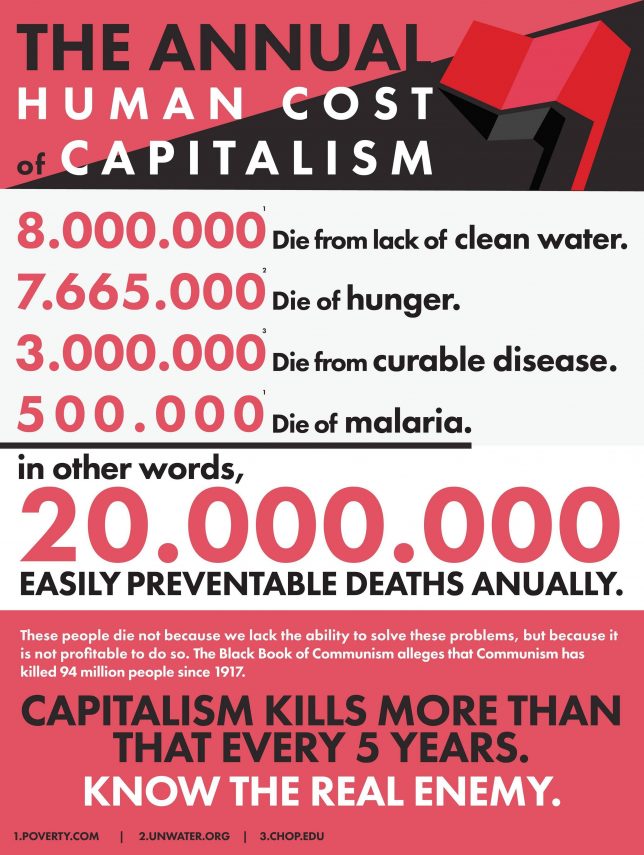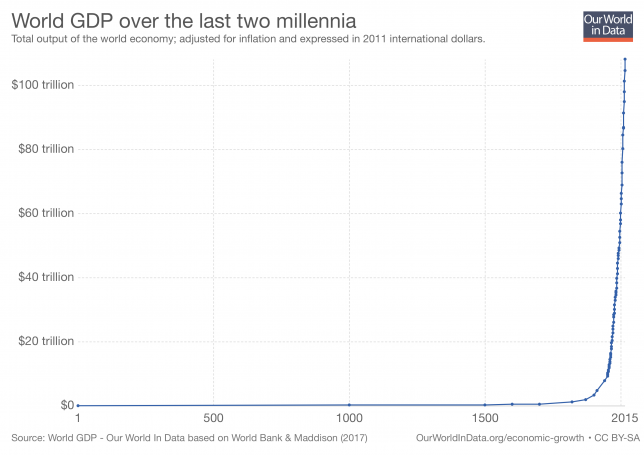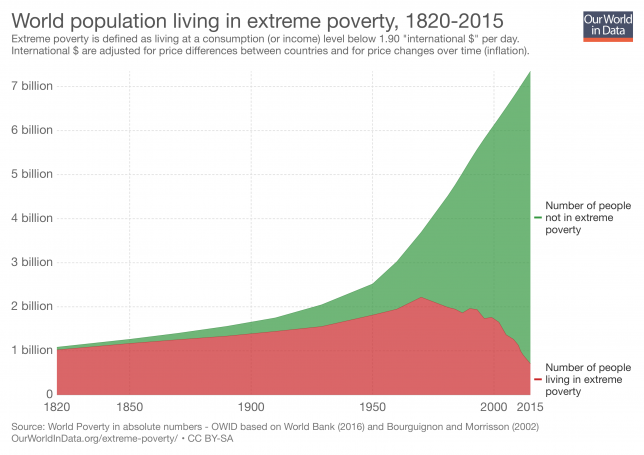Organization Trends
Why My Communist Critics Are Wrong


On Thursday, January 11th the Capital Research Center released a video written, narrated, and produced by me entitled “Communism will ALWAYS be Violent.” The video was a refutation of the claim that peaceful communism is possible and of the idea that the Soviet Union failed because the Soviets’ goal wasn’t “real communism.” In the video, I argued that the goal of peaceful “real communism” is impossible to attain, and that atrocious acts of violence are inevitable components of any attempt to achieve that goal.
Overnight, the video went viral. In less than 24 hours, it became our most widely viewed video of its type. In less than a week, it was shared 25 thousand times and viewed over 1.4 million times.
You can watch it here:
The video was our most popular piece of content ever. It was also, by far, our most criticized. The video received over 4,000 comments on our original posting of it. In my estimation, the majority of comments came from Communists or Communist sympathizers disputing my ideas. It has taken every fiber of my being not to respond to every single one of them and spend all my waking hours in social media arguments; I don’t think the Capital Research Center would enjoy my spending the workday on that!
Rather than respond to each comment, I’ll respond to the most common arguments made by critics of the video. Here are those arguments, and why they’re wrong.
Argument #1 – Capitalism is more violent than communism, and kills many more people.
A number of commenters alleged that capitalism is responsible for more deaths than communism. (Others declared a moral equivalence – that, while communism is violent, so is capitalism.) It is true that people are violent and we don’t live in utopia, and there will be violence under any system. But there is a difference between violence and death that happens under an economic system and violence and death that is caused by that system.

Many commenters used colonialism, the United States’ alleged “war for oil” in Iraq, or other wars for resources as examples.
Put aside the fact that the United States imported more oil from Iraq in the years immediately before the Iraq war than it has since, and consider: even if a capitalist nation were to go to war strictly to obtain resources, capitalism would not necessarily be the cause of that war.
My Communist critics seem to be operating under the notion that capitalism is nothing but the pursuit of private profits by any means necessary. Rather, amongst other characteristics, capitalism is a system of private ownership and voluntary exchange. Going to war in order to steal other people’s stuff is a violation of capitalist principles, not a fulfillment of those principles. Theft of resources, or, more broadly, the initiation of force, is directly contrary to capitalist beliefs.
To those who might accuse me of a double standard for discussing my fantasy of capitalism rather than “real” capitalism, only need to look to Switzerland, a nation ranked substantially more capitalist than the United States and that has not been in a foreign war since 1815, to see that peace is compatible with capitalism.

A related argument downplays the violence associated with communism. Some critics of my video claim that we inflated the number of communism-caused deaths. In fact, the number of deaths we used in the video, 85 to 100 million, is based on a number of estimates that are credible and are not seriously challenged. The work that’s considered the best source for these statistics is the one we sourced the numbers at the start of the video from, The Black Book of Communism (Stéphane Courtois, 1997), published by Harvard University Press. The numbers are of deaths directly caused by Communism, not simply of deaths that happened in Communist countries, as some commenters alleged. That book has its critics and the numbers may not be perfectly accurate. I’m open to debating if it’s a few million less, but non-historians claiming only a tiny fraction of that amount died and the numbers are propaganda are conspiracy theorists tantamount to Holocaust deniers.
Another line of argument attributing deaths to capitalism was that capitalism deprives the poor of material goods necessary for their survival as the bourgeoisie hordes them, leading into…
Argument #2 – Capitalism causes poverty and hunger, communism alleviates them.

Many of my Communist critics seem to believe that their utopia would have enough resources to fulfill everyone’s needs and that scarcity would not be a problem. One commenter even suggested that under communism people would only need to work four hours a day four days a week! They seem to believe that capitalists hoarding wealth at the top is the only thing standing in the way of bringing this about. This notion is absurd. Capitalism does not create poverty and death, reality creates poverty and death. Capitalism is the system that has provided us with the material wealth to lessen and delay it.

Since Homo sapiens evolved 315,000 years ago we have been poor and hungry. What needs explaining is not poverty–that’s the state of nature. What needs explaining is how we became so wealthy. And humanity has become massively wealthy. I shouldn’t need to convince Marxists that capitalism is responsible for this given that Marx himself believed it. Though Marx of course believed and desired that capitalism would be replaced by socialism at the right point in history, he also viewed capitalism as an inevitable and necessary economic system to accumulate wealth.
It’s true that humanity produces more food than we need to feed the world, a common left-wing talking point, but the problem is not that the bourgeoisie is hoarding all of it. Even looking away from the first-world, Africa produces enough food for its own population. The problem is we have issues storing food and getting it where it needs to be.
Some argued more broadly that the first-world bourgeoisie has exploited the third-world proletariat, but this is not true. First-world trade with third-world nations helps relieve their poverty. Trade helps the poor overcome their state of nature.
The mental model that many socialists work under that causes them to believe that the opposite is the case is what I call the “fixed pie” model of economics, which is that under capitalism, for the rich to get richer the poor must get poorer. That the rich can only get rich by taking what would otherwise belong to the poor. But there is not a fixed pie of wealth in society, rather there is a growing pie. In fact, while the rich have been getting richer, the poor have been getting richer too! And the rich getting richer helps the poor get richer. If one knows this, still considering income inequality a major problem appears to be nothing but jealousy.

(Also note the dip in absolute poverty in the 1990’s after the Soviet Union collapsed.)
50 years ago South Korea was as poor as Ghana. Under capitalism and free trade with the first-world, it has become the 11th richest country in the world just under Canada. Meanwhile, Communist and economically isolated North Korea (isolated in part because of sanctions and in part because of its Juche philosophy of self-reliance) ranks at 113, five spots below war torn Afghanistan.
Claiming that communism or socialism could possibly work better at alleviating poverty seems absurd from that one statistic alone, but there’s also the vast number of deaths from hunger under Communism (The Black Book of Communism estimates 11 million in the Soviet Union alone), in certain cases leading people as far as cannibalism. Many commenters were quick to point out that there have been famines and deaths from poverty under capitalism as well, but the degree is not even close. In 1984, life expectancy in Russia was six years lower than Western Europe, infant mortality was three times higher, and 17% of Soviets lived below the poverty line.
Many claim that Western European or Scandinavian nations are socialist and have a high standard of living, but they are far from socialist. All Western economies are mixed economies that have some socialized elements and Scandinavia is no different, but Sweden is ranked the 19th most capitalist nation in the world, just two positions less economically free than the United States. This mistake is aided by the confusion between social democracy and democratic socialism, helped along by Bernie Sanders’ use of the term democratic socialism to incorrectly describe Scandinavia. Social democracies have some income redistribution and welfare state policies, but are otherwise capitalist. Democratic socialism is socialism brought about and managed through democracy rather than dictatorship. Even arch-capitalist economist F.A. Hayek believed that modest social insurance programs could be compatible with capitalism, so long as they followed the rule of law and couldn’t grow endlessly.
There’s a reason socialism can’t succeed at creating economic growth in the long-run, and that’s because socialism is missing the basic building blocks that allow for successful economic planning. Primarily, prices derived not by fiat, but by the real information of supply and demand which can only be learned through market exchange. And that’s not the only way in which Marx was wrong about economics…
Argument #3 – It’s under capitalism that people don’t keep what they make, not communism.
I see now how “people don’t get to keep what they make” could be wrongly interpreted as applying to capitalism under the Marxist notion of “surplus value.” That idea claims that because capitalists make profit from the work of those they employ, that profit is surplus value that rightfully belongs to the workers who supposedly created it, not the capitalist who “extracted” it from them.
But that so called “surplus value” is not surplus at all, rather it’s paying for vital economic functions. Firstly, there is the role of the entrepreneur, the person who is being paid for coming up with the idea without which the workers wouldn’t have anything to produce. Second, profit tells capitalists where resources are needed and incentivizes them to shift more resources into it, in the long run bringing prices down and reducing profit via competition. Third, profit is a potential payment in the future to capitalists for forgoing money in the present (a return on investment). Without capitalists forgoing money in the present to pay wages to their workers, workers wouldn’t be able to afford to produce things that take a while to earn money (some companies don’t even see revenue let alone profit for years). Of course also, many companies fail to turn a profit and go bust, in which case the capitalist paid workers’ wages yet saw no profit or “exploited” surplus value all.
Moreover, the notion that one’s labor even has a specific value is wrong. The idea of surplus value is subsidiary to Marx’s “labor theory of value,” which to his credit, was also the approach of many classical economists of the 18th and 19th century including Adam Smith and David Ricardo. It holds that the value of a product comes from the amount of labor put into it. But if there’s any reason that Marxist economics is rejected by the mainstream, which it is, it’s that it still holds on to this outdated premise.
For well over a century, mainstream economics has subscribed to the “subjective theory of value,” which holds that the value of a product is determined by how much it’s desired by people. This is obviously correct, as if the labor theory of value was true, someone could dig a ditch in the woods for no purpose and expect their useless hole to have the same value as any other use of their time. On the subjective theory of value, one’s labor only has value because there is a market of employers willing to buy it (or for the self-employed, purchasers of their products); without that there is not only no possibility for surplus value, but no possibility for any value at all.
Argument #4 – It was not real communism!
Lastly, perhaps the majority of critical comments didn’t accept that the video was a critique of communism at all. I was accused of not understanding communism, not having read Marx, or criticizing state capitalism instead of “real” communism. To these people, I have little to say besides reiterating the point of the video to attempt to get through their cognitive dissonance.
It doesn’t matter if the Soviet Union or other so-called Communist nations were indeed communist per-Marx’s definition. Clearly they were not. But if you do not believe that the goal of their revolutions was to institute socialism, which would then turn into communism, and if you do not believe that they were genuine in their desires, simply re-read Lenin, Mao, and the others and ask yourself why so many Communists would rally around them if they were ingenuine.
No. Their intent was clear. Any single failed example could be excused, but when every nation that called itself Communist has failed to achieve it, it signals that’s because communism cannot be achieved. Their attempts to fight against reality have only been sustained through violence until they inevitably crumble.


